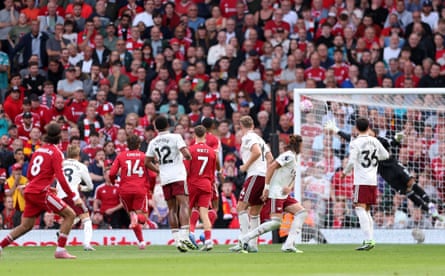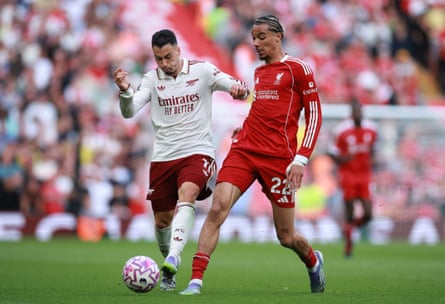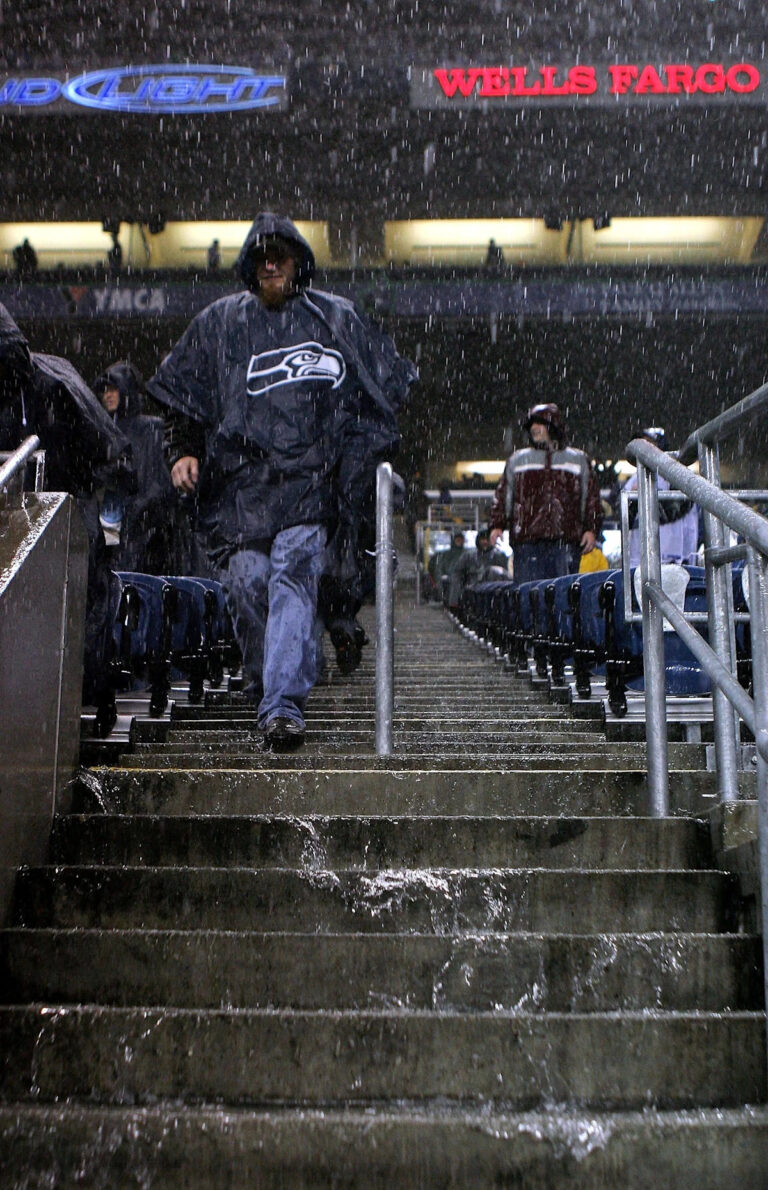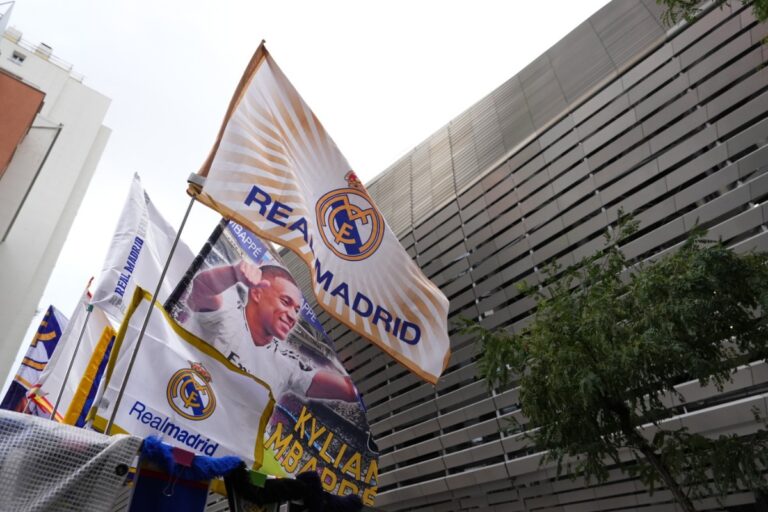
You can get it if you really want. You really can. You can get it. Getting it is a distinct and achievable outcome. There is just one caveat. You do have to actually show some sign of wanting to get it, to throw a little risk to the wind.
This seemed to be the catch for Mikel Arteta at Anfield, on a day where for long periods his Arsenal team were in the ascendancy, dishing up a performance that was assured and compact, but also a bit like watching a politician giving a campaign interview on live TV where the idea is to simply say nothing, wear the right tie, filibuster, convinced that if nothing happens then good things are probably happening. This felt like a kind of high-end Starmer-ball. Hold the line. Let the other guy lose.

Whereas for Arsenal that sense of a missed opportunity will linger, because there was more here for them than they ever tried to take. Anfield had been drenched in watery late summer sun at kick-off, the pitch a perfect soft lime green.
The opening act was a hard, flat, pre-planned Arsenal touch finder over the head of Szoboszlai, a Rob Andrew-style move for position and structure up the pitch. The approach seemed fair. No quarter. Keep the zero with which you came into the game.
But Arsenal also played well enough early on to create a sense of something more. Arteta had picked a conservative-looking team, with three solid central midfielders up against Slot’s more chancy Gravenberch‑Mac Allister pivot. Alexis Mac Allister had started one game since April. Arsenal are a weather front in midfield. They began, if not to dominate then to gain a numerical hand.

And then, nothing happened. A splinter had been prised away from the door. Nobody crashed through it. And this kept happening. Szoboszlai isn’t a specialist right-back, doesn’t have the grooved defensive body shapes, the muscle memory. He must have been delighted to face Gabriel Martinelli, who presents only one challenge – a straight-line foot race. You don’t pick Martinelli for goals. You pick him for yardage. He’s a diesel estate player, a fleet car player, low-risk motorway miles.
after newsletter promotion
With nine minutes gone Martinelli led a four‑versus‑three break and just shielded the ball all the way to the byline. Guys, we’re definitely not conceding from this breakaway attack. Is this the way to win a league? With a super quick winger who basically spends 90 minutes doing shuttle runs near a game of football? Another advantage had presented itself. Again, nothing happened.
Arsenal had other points of strength, most notably a right‑footed right‑winger and a No 9 in the box. Noni Madueke seemed to have the run of Milos Kerkez. He didn’t see the ball enough, didn’t get it quickly enough, had to wait as the system scrolled through its patterns. In the centre Arteta came to Anfield with a bullocking centre-forward, and rare opportunity to at least disturb Virgil Van Dijk, whose game is an act of minimalism these days. Less Van Dijk is more Liverpool. Unmussed, unbothered Van Dijk is a barometer of victory. What’s his sweat reading? Is the hair still perfect?
Instead Viktor Gyökeres touched the ball twice in the opening half hour. He wrestled endlessly with Ibrahima Konaté, all flailing arms and legs and biceps. Again, an opportunity went unexplored. Arsenal did successfully rack up five corners, then watched Declan Rice spoon and punt and swirl them into weird areas.
Meanwhile Liverpool stuttered a little. They played in bursts. By half-time it felt like a game still firing up the warp drive, plotting the angle of ascent. And this was always a problem for Arsenal, because it was also their chance to win it.
Before long Liverpool had re-geared, with Curtis Jones on and more space on Mo Salah’s flank. Arteta did the right thing, bringing on Martin Ødegaard and Eberechi Eze. But the tension had relaxed. Liverpool always looked like the only team that was going to win from there.
It would still be unfair to call this a big chance missed. It was more a failure to try hard enough to make it one, to be happy instead with a cagey, processed parity, sport without rage or risk. By the end a close 1-0 defeat felt a little more than a close 1-0 defeat, shot through with a sense of flinching with the moment there to be seized.




